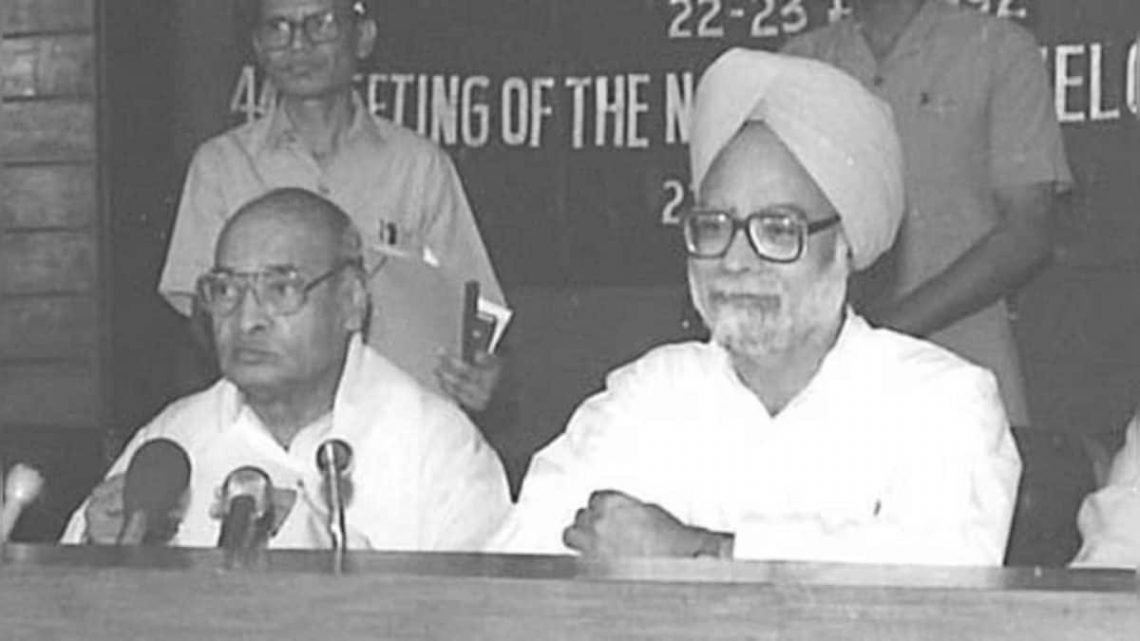The world is remembering Manmohan Singh, the former prime minister of India, who breathed his last on Thursday, December 26. However, not many know how he made his debut in politics and how a late night phone call ascended his political journey and also became a turning point for India and its economy.
Between 1970s and 1980s, Singh donned many hats, from serving as the chief economic adviser, Reserve Bank of India (RBI) Governor, to heading the Planning Commission.
In June 1991, when Singh was serving as the chairman of the University Grants Commission (UGC), he got a late night call. He had already gone to bed by then after returning to Delhi attending a conference in the Netherlands.
The call was made by PC Alexander, a confidant of the then prime minister Narasimha Rao. Since Singh was resting, the call was answered by his son-in-law Vijay Tankha, who was urged to wake him up.
Within a few hours, Singh and Alexander met where he was informed about Rao’s plan to make him the finance minister.
The portfolio of the finance minister is considered critical as well as crucial in the Cabinet of the ruling government at the Centre and Singh had no experience of being in active politics.
Also, the charge of the finance minister was being bestowed on him when India was witnessing a turbulent period with a fragile economy marred with a severe balance of payments crisis and was in a desperate need for a course correction.
Rao thought Singh to be fit for the role.
On June 21, 1991, Singh was working in his UGC office in New Delhi when he was asked to go home and get dressed to attend the swearing-in function.
“Everybody was surprised to see me as a member of the new team lined up to take the oath of office,” Singh was quoted as saying in the ‘Strictly Personal, Manmohan & Gursharan’, written by his daughter Daman Singh.
He even recalled that his portfolio was assigned to him later, but Rao had personally informed him “straight away” that he would be the finance minister.
Barely a month after, Singh was to present his first Union Budget which changed the course of the economy of India.
According to a report by The Times of India, Singh was already aware of the problems and also had solutions which helped him outline his speech for the budget. He closely started to work with then RBI deputy governor C Rangarajan to devalue the rupee and removed export controls in partnership with then commerce minister P Chidambaram.
Singh presented his first budget on July 24, 1991 but hours before that, the Rao-led Central government had introduced a new industrial policy in Parliament, based on a document that was seen by Singh during his brief stint as economic adviser to Chandra Sekhar, who led a fragile coalition government between 1990 and 1991.
With this, the first budget presented by Singh saw the Indian economy getting rid of the licence-permit raj. Also, foreign direct investment (FDI) was allowed in 34 industries.
Apart from these, Singh also ended public sector monopoly in several sectors and permitted disinvestment of government shareholding in state-run companies.
The budget presented by Singh also announced the setting up of Sebi, freeing up fund-raising by Indian companies and also declared formation of a new committee under the then RBI Governor M Narasimhan to restructure the financial sector.
The budget tabled by Singh also announced measures to “liberalise the policy regime for direct foreign investment” into India.
Singh also announced the historic step of opening up the Indian economy to the world – facilitating a two-way access to global markets and technologies.
He also focused his budget on the precarious price situation of that time and said, “The price situation, which is of immediate concern to the vast mass of our people, poses a serious problem as inflation has reached a double digit level. During the fiscal year ending March 31, 1991 the wholesale price index registered an increase of 12.1 per cent, while the consumer price index registered an increase of 13.6 per cent. The major worrisome feature of the inflation in 1990-91 was that it was concentrated in essential commodities.”
Singh concluded his historic budget speech with a quote of a famous novelist Victor Hugo, “No power on earth can stop an idea whose time has come”.
He also borrowed the iconic line from renowned poet Girija Kumar Mathur’s composition “Hum Honge Kaamyab” as he ended his first Union Budget speech as a finance minister in 1991.
Link to article –
